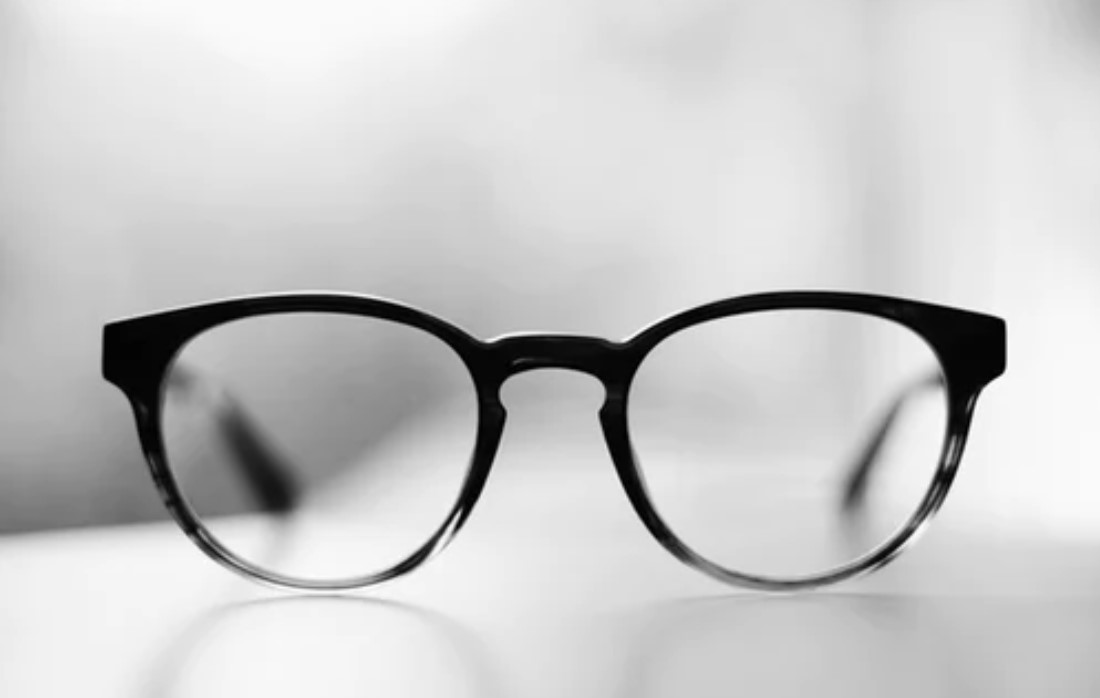Erin Lynn Sattler started worrying when her vision became blurry while using the computer, but her eye doctor said her eyes were fine. Then she got a new computer at work, with a much brighter screen, and her eyes and head started hurting. She’d heard of blue light glasses and did some online research to learn more.
“For $50 I figured it was worth a shot,” says Sattler, of Bellevue, WA. “Lo and behold, my eyes don’t feel as strained, my blurry vision is gone, and as weird as it sounds, my face doesn’t feel so tired after work.”
Sattler is among the growing number of people who wear special eyewear to block or filter the high-energy blue light coming from digital screens. Market Study Report, a market research company, says the global market for blue light eyewear will increase to $27 million by 2024, up from $18 million in 2019. The advertised benefits of the glasses include less eyestrain, improved sleep habits, and prevention of eye disease.
But do blue light glasses really work? It depends on who you ask. Because the glasses are a newer product, there’s not a lot of research to show either way. The FDA doesn’t regulate the eyewear because it’s not marketed as a medical device. The American Academy of Ophthalmology says you don’t need them and has gone on record as not recommending any kind of special eyewear for computer users. The organization says blue light from digital devices does not lead to eye disease and doesn’t even cause eyestrain. The problems people complain about are simply caused by overuse of digital devices, it says.
“The symptoms of digital eye strain are linked to how we use our digital devices, not the blue light coming out of them,” the AAO says.
In the United Kingdom, the Association of Optometrists says there is “a lack of high quality evidence to support using BB [Blue Blocking] spectacle lenses for the general population to improve visual performance or sleep quality, alleviate eye fatigue or conserve macular health.”
But some eye professionals believe they have benefits.
Greg Rogers, senior optician at Eyeworks in Decatur, GA, says he’s seen the benefits of blue light glasses among the shop’s customers. The staff asks a client how much time they spend in front of a screen daily. If it’s 6 hours or more, some sort of blue light reduction technique is recommended, whether it’s glasses or a special screen for a computer monitor.
The Vision Council, which represents the optical industry, says “specialized glasses” are “one tactic” that might cut eyestrain. Samuel Pierce, OD, former president of the American Optometric Association, told USA Today he recommended using blue light glasses to lessen eyestrain.
Blue Light is Everywhere
We were getting plenty of blue light before modern digital life began. Most of it comes from the sun. But gadgets like televisions, smartphones, laptops, and tablets that populate modern life emit the brighter, shorter-wavelength (more bluish) light.
A 2018 survey by Acuvue, the contact lens maker, found office workers spend about 6.5 hours a day sitting in front of their computer. A Pew Research Center survey found that 28% of American adults say they go online “almost constantly,” up from 21% in 2015. Younger adults are online the most,
with the Pew survey finding around half of respondents 18-29 years old reporting they’re online constantly.
Susan Primo, OD, an optometrist and professor of ophthalmology at Emory University, agrees that the research so far shows digital overuse, not blue light, causes eye problems. But some patients who wear blue light glasses do report less eyestrain, she says.
“If you want to wear them and find some benefits, that’s fine,” she says
Primo says she’s bothered by some of the marketing and advertising of blue light eyewear because it doesn’t line up with the research.
“They can word it in such a way that makes it appear to be beneficial. They can say this might be possible. They can use words like ‘may’ and ‘might,’” she says. “Marketing can take things to a level that might not be a sound recommendation, sound science, for people to go out and get them.”
An example: A chain of stores in the United Kingdom, Boots Ltd., was fined 40,000 pounds in 2017 for misleading advertising that said digital blue light caused retinal damage and that special eyewear sold at Boots Ltd. could protect users, Optometry Today reported.
Trying to Get Some Slee
Another argument in favor of blue light glasses is that they help you sleep better at night. Researchers agree that blue light from LED devices like your smartphone or laptop holds back the body’s production of sleep-inducing melatonin.
A 2017 study done by the University of Houston found that participants wearing the glasses showed about a 58% increase in their nighttime melatonin levels. “By using blue blocking glasses we … can improve sleep and still continue to use our devices. That’s nice, because we can still be productive at night,” said Lisa Ostrin, PhD, a professor at the university’s College of Optometry, according to a university news release.
The American Academy of Ophthalmology takes a different approach. “You don’t need to spend extra money on blue light glasses to improve sleep — simply decrease evening screen time and set devices to night mode,” the group says.
‘If It Helps, Who Cares?’
Sattler says she knows about the studies that say the glasses don’t do anything. “I’ve heard the naysayers,” she says. “It very well could be placebo, but if it helps, who cares?”
Cindy Tolbert of Atlanta had a variety of vision problems and spent an extra $140 at the eye doctor for blue light lens.
“It’s not terribly apparent that the glasses help when you’re wearing them, but I believe I can work longer and I know I can work more comfortably,” she says. “Usually my eyes poop out after 4 or 5 hours of computer work, but I can work longer with the glasses.”
Michael Clarke of San Diego says he doesn’t care what the experts say about blue light glasses. They work for him.
“I use them so often that I have a pair of blue light glasses around my neck all day,” he says. “I’m not an optometrist. I just know that my eyes don’t get as tired at the end of the day. My frequency of headaches has gone down. I’m able to focus on things easier on a screen.”
You can easily order prescription and nonprescription blue light glasses at the optometrist’s office or online.
Calls to optometry offices showed that adding blue light blocking to prescription glasses cost $40-$60 at LensCrafters and $47-$125 at Pearle Vision, with nonprescription blue light glasses starting around $99.
Zenni has a special Blokz line of blue light glasses that start at $16.95. At Warby Parker, you add blue light blocking at checkout for $50. Felix Gray blue light lenses start at $95.
Give Your Eyes a Break
If you’re worried about how computers and other blue light-emitting screens are affecting your eyes, you can find relief without special eyewear.
The American Academy of Ophthalmology, the Vision Council, and other vision-related organizations urge moderation in screen use. Most of them recommend adopting the 20-20-20 rule. That means that every 20 minutes you’ll look at an object at least 20 feet away for 20 seconds.
The American Academy of Ophthalmology also recommends taking these steps:
- Adjust your seat, or the position of your computer, so your eyes are about 25 inches from the screen. Position the screen so you’re gazing slightly downward.
- Use a matte screen filter on the screen to reduce glare.
- Use artificial tears when your eyes feel dry.
- Pay attention to the lighting in the room where you work. You might try increasing your screen contrast.
- If you wear contact lenses, give your eyes a break by wearing glasses now and then.
Original article: https://www.webmd.com/eye-health/news/20191216/do-blue-light-glasses-work




























Comments